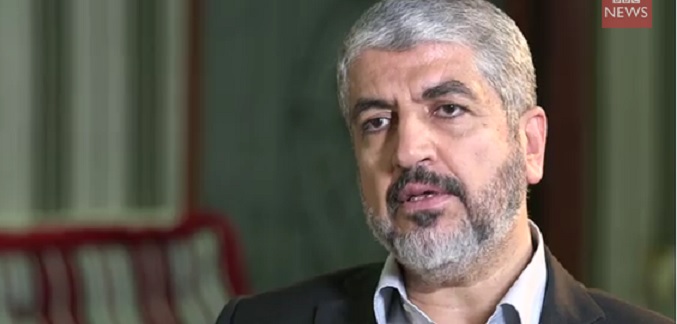The Jerusalem Post on Thursday conveyed updates from top Israeli officials, including from the country’s Prime Minister Benjamin Netanyahu, indicating that Hamas was continuing to rebuff Western and especially American efforts aimed at securing an immediate ceasefire to ongoing hostilities between Jerusalem and the Palestinian terror group:
“Hamas has demands from here to Vladivostok,” Netanyahu said in a private meeting, rejecting their conditions for stopping Operation Protective Edge – now in its 18th day.
“We are continuing Operation Protective Edge at full strength, in the air and on the ground,” he said at the opening of a special cabinet session held in the Knesset. The security cabinet is scheduled to meet on Friday afternoon to consider the direction of the military campaign against Hamas in the Gaza Strip.
The outlet quoted Netanyahu explaining that Hamas has doubled down on a range of long-demanded nonstarters – from Israel lifting its legal blockade of the Gaza Strip to Egypt opening up its own border with the Hamas-controlled territory – and that the Israeli army would therefore continue implementing what has become the ground phase of Israel’s Operation Protective Edge.
American officials for their part took the opportunity to tell Yediot Aharonot that ongoing efforts by Secretary of State John Kerry to secure a ceasefire would not continue “for an indefinite amount,” statements that the outlet read alongside public statements from top Hamas official Khaled Mashaal reiterating Hamas’s demands.
Meanwhile Israeli military officials issued assessments suggesting that Hamas is seeking to conserve its rockets – firing fewer rockets per day – to enable continued barrages over the course of a protracted conflict:
According to IDF figures, since the beginning of the ground operation Hamas has fired fewer rockets and mortars at communities in the south. The average of the past few days has been about 90 launches a day, of which about 20 have been intercepted. Security officials believe that the reason for the slowdown is both because of the dwindling stocks in the hands of Hamas and Islamic Jihad, and the organizations’ desire to hold on to the remaining arsenal.
Similar assessments regarding the periodicity of rocket attacks had been in play in the early days of Operation Protective Edge, as analysts sought to gauge the likelihood of an Israeli ground invasion. Observers pointed to the convergence of three Hamas strategies – storing its rockets in underground defensive tunnels inaccessible by air, firing them at a pace that would enable months of barrages, and aiming them at strategic targets such as airports and nuclear reactors – to paint a scenario under which a ground phase would inevitably be launched to degrade Hamas’s defensive tunnel infrastructure.
The activation of Hamas’s offensive tunnels, through which the terror group sought to infiltrate Israel and launch mass-casualty attacks against lightly guarded Israeli civilian centers, eventually superseded that debate and triggered an almost immediate ground action.
[Photo: BBC News / YouTube]




